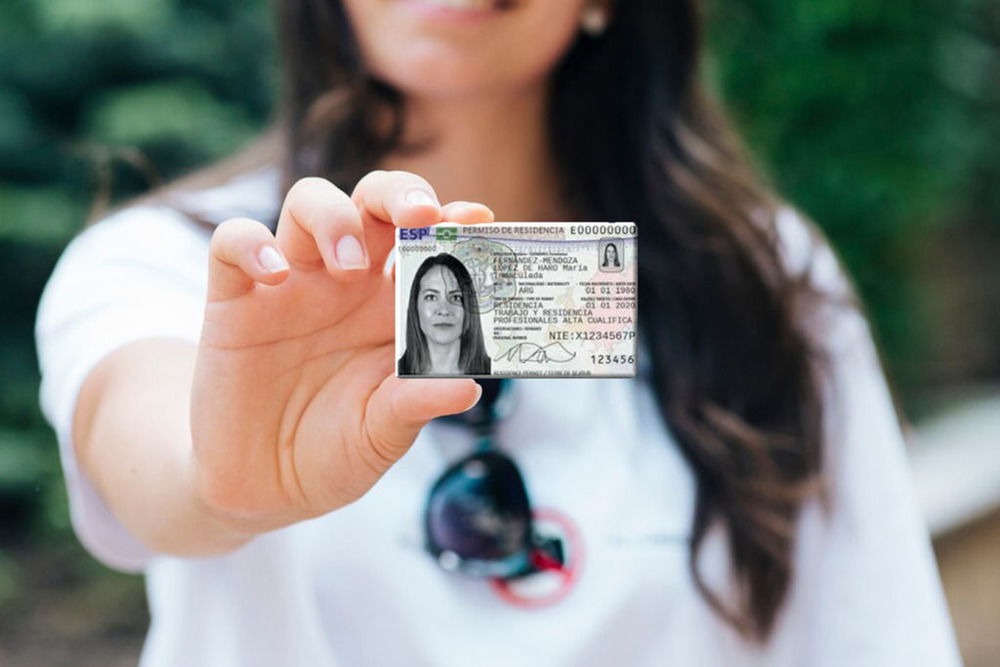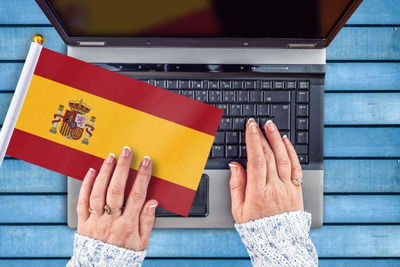
Spain has long been a popular destination for digital nomads, foreign residents and entrepreneurs. However, the process of obtaining a visa, complying with immigrant laws and purchasing property requires careful consideration. In this article, we will break down the key aspects that will help you successfully move to Spain and become part of the local community.
Digital Nomad Visa in Spain: Conditions and benefits
What is a digital nomad visa in Spain
The digital nomad visa is a special type of permit that allows foreign professionals working remotely to reside and earn an income in Spain. Unlike traditional work visas, it does not require an employment contract with a Spanish company.
Main differences from other types of visas:
- No need for an employment contract.
- Opportunity to work for foreign employers.
- Simple process to obtain for EU and non-EU citizens.
Benefits for remote workers:
- Ability to reside in Spain with no time limit.
- Access to educational and health services.
- Ability to obtain permanent residency after 180 days.
Spain offers one of the most flexible programmes for digital nomads, making it attractive to those looking for stability and comfort. Another plus in the piggy bank of benefits in Spain.

Requirements for obtaining a digital nomad visa
To apply for a digital nomad visa Spain you need to provide the following documents:
- A passport.
- Evidence of stable income (e.g. bank statements or contracts with employers).
- Health Insurance.
- Proof of residence in Spain (e.g. rental agreement or certificate of registration).
Conditions for financial sustainability:
- Financial sustainability conditions: The minimum income must meet the level set by the government. For example, at least €25,000 per year is required for 2024.
- It is possible to confirm income through official sources (e.g. freelancing or franchising).
Application Processing Timeframe:
The process usually takes 1 to 3 months.
Pros and possible limitations
Work and income opportunities:
Digital Nomads can work for any company, including foreign companies, without restrictions.
Comparison with other EU countries:
Unlike Germany or France, Spain offers a simpler visa application process, especially for EU citizens. However, third-country nationals may require additional documents.
Recommendations to improve the chances of approval:
- Prepare all documents in advance. Documents such as, for example, the NIE can be made in the country of residence long before the application is submitted.
- Contact a lawyer who specialises in immigration matters.
- Make sure your income meets the requirements.
Successfully obtaining a visa depends on attention to detail. Do not ignore the advice of experts.
Residency permit Spain process
Main steps in the application process
Advance preparation:
- Select the type of visa that corresponds to your status (e.g. digital nomad visa or business visa).
- Study the income and documentation requirements.
Application procedure:
- Apply at the Spanish consulate or embassy in your country.
- Attend an interview and provide the necessary references.
Waiting for approval:
Once approved, you will receive a temporary document that can be renewed after 180 days.
Necessary documents and requirements
Evidence of financial stability:
- Bank statements for the last 3 months.
- Contracts with employers or proof of stable income.
Insurance and medical support:
- Health insurance covering medical treatment in Spain.
- A certificate of health insurance issued in your country.
Availability of a working contract:
- Some types of visas require a formal employment contract.
Common mistakes and how to avoid them
Incomplete application packets:
- Make sure all certificates and copies are sent in full.
Non-compliance with income requirements:
- Make sure your income meets minimum standards.
Mistakes in the design of applications:
- Use the templates provided by the consulate.
Avoid rushing. Errors in documents can lead to rejection. Find an experienced lawyer to minimise the risks.
Laws on property ownership in Spain for foreign nationals
Basics of the legal system
Peculiarities of purchase and sale of real estate for foreigners:
- Foreign nationals can purchase property without restrictions.
- However, there may be restrictions for the purchase of agricultural land.
Property rights and owners' responsibilities: ownership rights and responsibilities:
- Owners are required to pay property taxes (IIBI and IVA).
- The law requires regular maintenance of the property.
Recommendations for choosing a lawyer:
- Find a lawyer who specialises in international law.
- Check reviews and experience.
Limitations and specifics
Restrictions on the acquisition of land and agricultural land:
- For foreign nationals, there may be restrictions on the purchase of land in certain regions.
Property taxes and maintenance obligations:
- Property tax is about 10% of the value of the property.
- Owners are required to maintain the property in good condition.
The impact of EU legislation:
- The EU regulates the rules for buying property, ensuring equal rights for all citizens.
A step-by-step strategy for buying a property
Searching for and selecting suitable accommodation:
- Use specialised websites such as Idealista, for example - https://www.idealista.com
- Determine your property budget and preferences (e.g. location or type of home).
Paperwork process:
- Prepare the purchase and sale agreement.
- Register the transaction at a local notary's office.
Specialist support and possible risks:
- Work with estate agents and solicitors.
- Be careful with unknown offers, check the legal cleanliness of the object.
Buying a property is a long-term investment. Take your time, check all the nuances.
Insurance for expats in Spain: What's important to know
Types of insurance policies
Health insurance for foreign residents:
- Mandatory for all those who plan to obtain a residency permit Spain.
- Covers treatment in public and private clinics.
Auto and liability insurance:
- Obligatory if you have a car.
- The cost depends on the type of machine and the risks involved.
Additional Options:
- Property and Travel Insurance.
- Policies that include emergency care.
How to choose the right policy
Comparison of offers from different companies:
- Explore the terms and conditions, cost and coverage.
- Compare companies such as Axa, Allianz and Carmen Seguros.
Consideration of needs and budget:
- Determine what services you need (such as inpatient or outpatient care).
The importance of English language support:
- Find an insurance company with English-speaking support.
Benefits and risks
Access to medical services and emergency care:
- In the event of an accident or illness, you will get help.
Dependence on contractual terms and conditions:
- You'll have to scrutinise the contract carefully.
Recommendations for choosing a reliable insurance agent:
- It is recommended to co-operate with agents who have experience in working with English-speaking clients.
Insurance is not just a formality. It provides peace of mind in unforeseen situations.
Visa requirements in Spain in 2025: What has changed
Main types of visas
Comparison of visas for work, study and tourist purposes:
- A work visa requires a contract of employment.
- The educational visa involves studying at Spanish universities.
- A tourist visa is not suitable for permanent residence.
Recommendations for selection:
- For people who work remotely, digital nomad visa Spain is suitable.
Changes to the 2025 legislation:
- Income requirements have been tightened.
- Simplified procedures for EU citizens.
New norms and requirements
Changes to visa application documents:
- Additional proof of income is required.
- Penalties for incomplete document packages have been increased.
New rules for digital nomads:
- Minimum residency periods have been established.
- Visa renewal procedures have been simplified.
Secrets of a successful application
Preparing documents in the early stages:
- Collect all references in advance.
Working with lawyers and consultants:
- Consult a lawyer to avoid mistakes.
An overview of rejection cases and their reasons:
- Incomplete documents.
- Non-compliance with income requirements.
Successful application depends on careful attention. Do not ignore expert advice.
Expat tax compliance Spain: Secrets of compliance
Tax liabilities
Taxation system for foreign residents:
- Residents pay taxes at a rate of 19% on income.
- Non-residents pay 24%.
Income and property taxes:
- Property tax (IIBI) - about 10 per cent.
- Income tax - depends on the source.
Differences between residents and non-residents:
- Residents are entitled to benefits (e.g. preferential tariffs for housing and utilities).
How to avoid fines and complications
Recommendations for reporting and documentation:
- Keep detailed records of your income and expenses.
- Turn in reports regularly.
Comparison of the tax systems of Spain and other countries:
- Spain has competitive rates compared to other EU countries.
The importance of consulting with tax professionals:
- Tax attorneys can help reduce the burden.
Tax advantages of residency
Opportunities to reduce the tax burden:
- Housing and education benefits.
Benefit programmes for foreign nationals:
- For example, benefits for the first year of residency.
The impact of tax policy on long-term residence:
- Fiscal stability favours long-term plans.
Proper tax planning is the key to stability in Spain.
Conclusion: The way to a stable life in Spain
In this article we have covered the key aspects involved in obtaining a digital nomad visa Spain, immigrant compliance, property purchase, insurance, 2025 visa requirements and tax obligations. Each step requires careful consideration and knowledge of local regulations.
ДTo successfully move and live in Spain, it is important to consider all aspects, from choosing a visa to tax compliance. We hope that this article will help you to take the first step towards living in Spain.
Get started on your preparations today! Find an experienced lawyer, research the requirements and start your journey to your new life in Spain.





 English
English  Español
Español  Русский
Русский